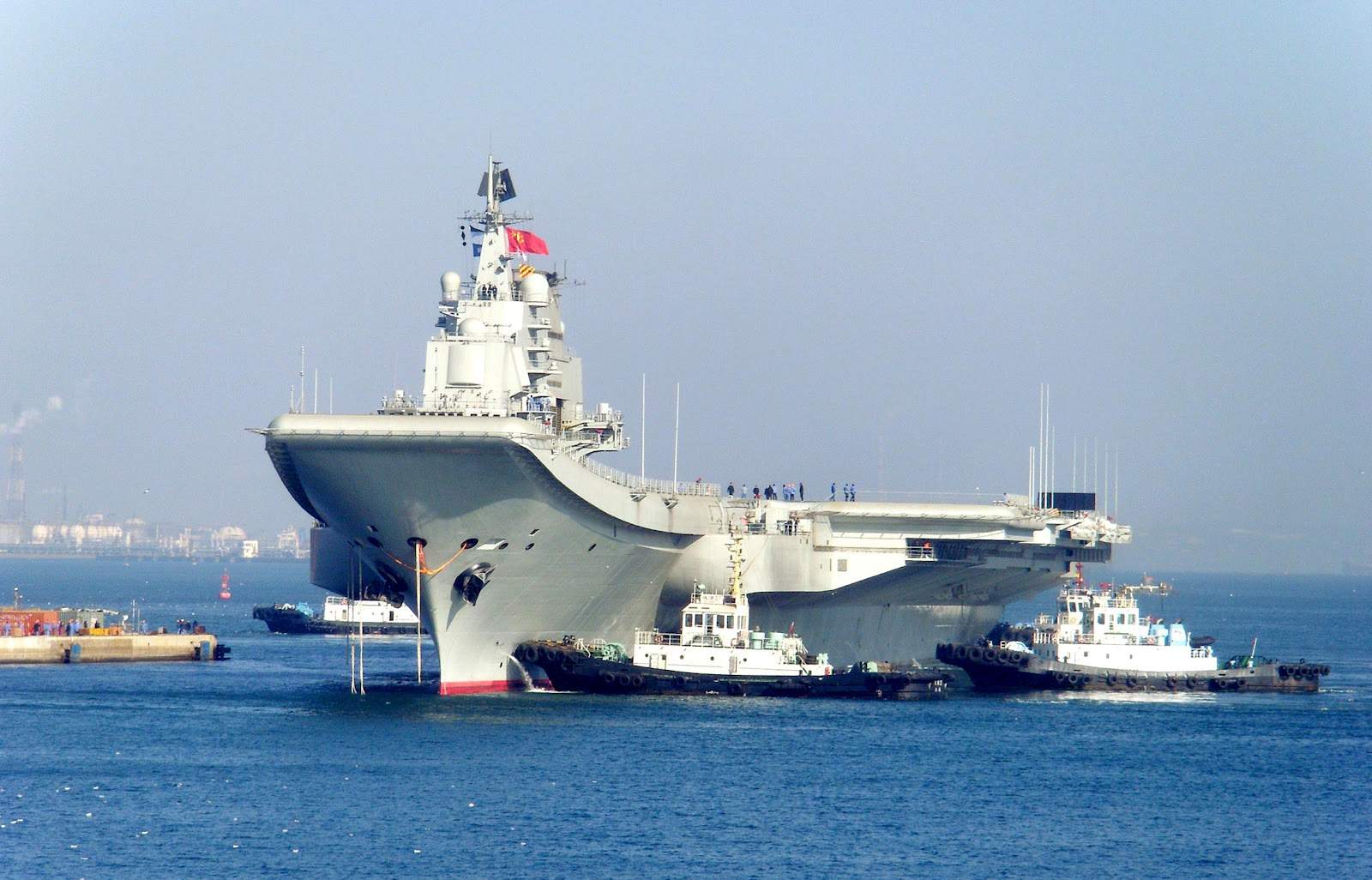China has launched its first domestically designed and built aircraft carrier, state media said Wednesday, as the country seeks to transform its navy into a force capable of projecting power onto the high seas.
Beijing has embarked on an extensive project to build a “blue water” navy and modernise its two million-strong military, the world’s largest.
The country’s rapidly expanding military might includes a range of maritime defence capabilities, a fleet of attack submarines, and highly sophisticated anti-aircraft systems that prevent enemy vessels from nearing its coast.
Chinese President Xi Jinping has said that “all must be done” to improve the country’s battle capacities so it can “fight and win wars.”
Adorned with colourful ribbons, the Type 001A ship “transferred from dry dock into the water at a launch ceremony” in the northeastern port city of Dalian, according to official broadcaster CCTV.
The ribbon-cutting was followed by the traditional breaking of a champagne bottle on the ship’s bow.
China’s defence ministry has previously said the new carrier would displace 50,000 tonnes and use conventional rather than nuclear propulsion.
It is expected to carry China’s indigenous J-15 aircraft, along with other planes.
China is eager to show its strength in the South China Sea, where it insists on sovereignty over virtually all the resource-rich waters despite rival claims from its Southeast Asian neighbours.
It has extensively reclaimed reefs and installed military and other facilities including airstrips on some outcrops, dismissing an international tribunal’s ruling last year that rejected China’s claims to the disputed areas.
Symbolic event
Analysts said the ship represented a “status symbol” for Beijing in a contested region but posed little threat to advanced US carriers.
“The launch of the new aircraft carrier is primarily a symbolic event because it will take about two years for the vessel to be equipped and to make its first real tests overboard,” according to Juliette Genevaz, China researcher at the France-based Military School Strategic Research Institute.
Nevertheless, Genevaz said, it is a “technological leap” for China as it signals the development of more native aircraft carriers in the future.
The Type 001A is China’s second carrier. The first, the Liaoning, is a secondhand Soviet ship built nearly 30 years ago and commissioned in 2012 after extensive refits.
The possession of a native aircraft carrier places China among the few military powers with such vessels, including the United States, Russia and the United Kingdom.
But experts were quick to point out that China’s naval force still lags far behind that of the US, the world’s leading military power which has multiple carriers.
James Char, China military analyst at Singapore’s S. Rajaratnam School of International Studies, said the new vessel will serve as more of a “status symbol” for China in the East and South China seas, where the Liaoning conducted its first live fire drill in December.
“It is highly unlikely to pose a threat to the US if you look at how advanced American aircraft carriers are,” Char said.
Users on the Weibo social network expressed delight at the launch of the Type 001A.
“This great moment will be written in the glorious history of China,” wrote one commenter.
“We are going to make a solid and important step forward into the deep sea.”
Others hoped China would soon match the capabilities of US carriers: “I really hope that we can catch up with them and then set off firecrackers to celebrate!”










